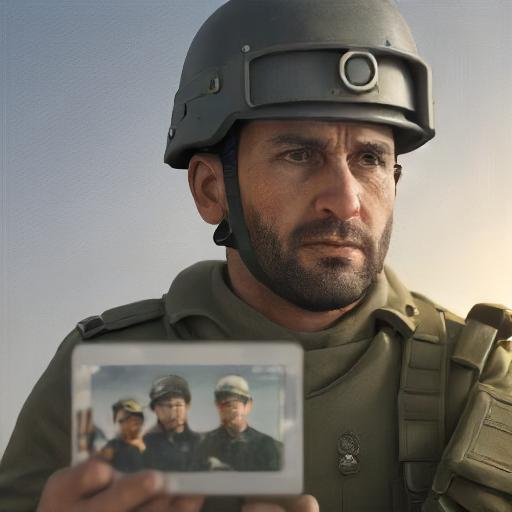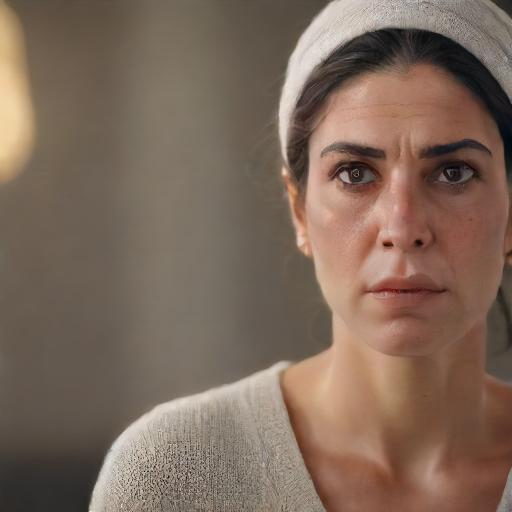Behind every returning soldier, there’s a story of resilience—and often, an untold struggle with intimacy and sexual health.
The ongoing conflict in Israel has left many of our soldiers profoundly affected, not only by the physical and emotional scars of war but also by the challenges they face when trying to reintegrate into everyday life. Since Oct 7th, I have seen firsthand how these brave individuals grapple with complex and often confusing sexual responses after their service in Gaza. These responses can vary widely, from hypoactive sexual desire (a significant decrease in sexual interest) to hyperactive sexual desire (an overwhelming increase in sexual activity).
The Impact of War on Sexual Health
The psychological and physical toll of war can extend far beyond the battlefield, significantly impacting a soldier’s sexual health and intimate relationships. The transition from the hypervigilant state required in combat to the perceived safety of civilian life is neither immediate nor easy. This disconnection can lead to significant challenges in their personal relationships, where intimacy, once a source of comfort and connection, may now feel unfamiliar or even unattainable.
Hypoactive Sexual Desire: Understanding Withdrawal
One of the most common issues I encounter is hypoactive sexual desire among returning soldiers. This condition can be deeply distressing for both the soldier and their partner. Several factors contribute to this withdrawal:
● Psychological Trauma: The relentless stress and trauma of war can lead to conditions
like PTSD, anxiety, and depression, which often suppress sexual desire as the mind and body remain in a state of alert, focused more on survival than on intimacy.
● Emotional Numbness: Many soldiers report feeling emotionally numb as a coping mechanism to deal with the horrors of war. Unfortunately, this numbness can spill over into their intimate relationships, making it challenging to connect on a sexual level.
● Guilt and Shame: Some soldiers carry a heavy burden of guilt or shame related to their actions in combat or simply because they survived while others did not. These intense emotions can create a significant barrier to sexual intimacy, leaving them feeling undeserving of pleasure or connection.
Hyperactive Sexual Desire: The Urge to Reconnect
On the other hand, some soldiers experience the opposite—a hyperactive sexual desire. This heightened drive can be influenced by:
● Seeking Reconnection: After enduring the isolation and fear of combat, some soldiers may turn to intense sexual activity as a way to reconnect with life, affirm their humanity, and re-establish bonds with their partners.
● Adrenaline and Hypervigilance: The adrenaline and heightened alertness that kept them alive in combat may linger, sometimes leading to impulsive or compulsive behaviors, including increased sexual activity. What might seem like a healthy sexual drive can often be a continuation of the fight-or-flight response, rooted in survival rather than intimacy.
● Escaping Trauma: For others, sex becomes a temporary escape from the painful memories and intrusive thoughts of war. By immersing themselves in the physicality of sex, they can momentarily push aside the trauma that haunts them.
Therapeutic Intervention: The Role of Specialized Therapy in Healing
Addressing these complex sexual responses requires more than just understanding—it demands specialized therapeutic intervention. Therapy offers soldiers a safe space to process their trauma, explore their emotional responses, and begin to heal. A trauma and sexual health specialist is essential in this process, providing tailored approaches like Somatic Experiencing Therapy or Eye Movement Desensitization and Reprocessing (EMDR) Therapy . This body- focused therapy helps soldiers reconnect with their physical sensations, release stored trauma, and gradually reclaim their sexual health.
Beyond individual therapy, couples therapy is also invaluable. It equips partners with the tools to navigate these challenges together, fostering open communication, understanding, and a renewed sense of connection. By working closely with a specialist, soldiers and their partners can rebuild their relationship on a foundation of trust, patience, and mutual support.
If you or someone you know is navigating these challenges, reach out for specialized support today. Healing is possible.
The Best You Can Be: A Relationship Lesson from Simone Biles
(image credit: depositphotos)
Have you ever felt overwhelmed by the need to be perfect in your relationship, constantly trying to meet your partner’s expectations while concealing your own struggles? Watching the Olympics with my family got me thinking – how do Olympians do it? The immense pressure, tremendous expectations, all while exuding this aura of being superhuman? Listening to American Gymnast, Simone Biles’s provided me with some insight:
Despite an apparent injury, Biles competed with her characteristic excellence, leaving us not only in awe of her athletic prowess but also inspired by her approach to challenges. Her journey provides valuable lessons not just for athletes, but for anyone striving to build healthier relationships with themselves and others .
When asked if she was okay after the injury, Biles replied, “Yup! As good as I can be.” This simple response carries a powerful message: all we can expect of ourselves is to be the best we can be. This mindset is not only crucial in sports but is also a cornerstone for successful relationships. Being our best selves involves showing up authentically: being honest about our limits and capabilities.
In 2021, Simone Biles made headlines by withdrawing from competition to prioritize her mental and physical health, a decision some criticized as quitting but which was actually a profound act of self-care and self-awareness. By choosing her long-term well-being over short-term performance, Biles demonstrated the importance of stepping back to prevent burnout and stay engaged with our partners. This was during the COVID-19 pandemic, where the absence of her family significantly impacted her mental health, highlighting the crucial need to recognize and address the lack of a support system. This situation underscores the importance of acknowledging when support is missing and seeking help, as well as the value of understanding and communication in relationships to navigate challenges effectively.
Fast forward to 2024, Biles’ decision to discuss how she views the limits to her performance because of her injury further showcases her courage to be vulnerable. Biles is a woman in tune with when it is appropriate and inappropriate to push herself. What was the right choice for her in 2021, looked different this time around. In both she was able to put others’ expectations for her to the side, and focus on being “as good as I can be”. In relationships, embracing our vulnerabilities can strengthen our bonds. It allows us to be authentic, express our fears and weaknesses, and seek and offer support. Biles faced immense pressure but understood that the only person she needed to answer to was herself.
So, how does this translate to our everyday relationships? Reflect on when you last allowed yourself to be vulnerable with your partner and whether you create a safe space for them to share their own vulnerabilities. Consider if it’s time to revisit opportunities you’ve previously avoided or if you’re overextending yourself, as sometimes our commitments to others prevent us from being honest about our limits. Simone Biles teaches us that true balance comes from being forgiving with ourselves. We can all learn from Simone’s approach: strive to do your best, embrace your vulnerabilities, and foster a safe space for yourself and others. By doing so, you’ll build deeper connections and navigate your relationships with greater empathy and understanding. Biles’ journey reminds us that real strength lies in being in tune with ourselves, both in our personal achievements and in our relationships.
A Different Kind of Debate
Following the recent presidential debate, I was struck by the nature of conflict presented on stage. As someone who frequently navigates conflicts with clients, the debate epitomized the art of arguing with words. This spectacle got me thinking about what we can and can’t learn from these intense exchanges, strategies, and emotional undertones that permeate the conversation.
Presidential debates are inherently adversarial, designed to highlight differences and showcase a candidate’s ability to “win” an argument. In relationships, however, the goal should be resolution and understanding, not victory. Viewing conflicts as competitions to be won can foster resentment and drive a wedge between partners. Remember, it’s not you vs. them; it’s both of you vs. the problem. Instead of focusing on winning an argument, approach conflicts in a collaborative spirit, not combative. This is an opportunity to find a solution together.
Debates often prioritize quick, impactful sound bites over deep, meaningful dialogue. This approach can be detrimental in relationships, where meaningful communication is essential. Partners need time to express themselves fully and to understand each other’s perspectives without being interrupted or sidelined. Value holding your tongue, allowing the other person to finish speaking. If you feel the need to cool down – your not on the clock, and there’s no audience you need to impress- take all the time you need. Instead of interrupting or rushing to respond, try listening fully and reflecting back what you’ve heard before sharing your own thoughts.
The performative nature of debates—where candidates play to the audience—can mislead us into thinking that grand gestures and rhetorical prowess are what matter most. In reality, the subtleties of communication, such as tone, body language, and empathy, play a crucial role in private interactions. The way we express ourselves and the non-verbal cues we give off can significantly impact how our message is received. Instead of focusing on making a point dramatically, try speaking calmly and using body language that conveys openness and understanding.
“Debates” or the occasional argument provide a positive outlet in both the political and private sphere. In politics, debates allow candidates to outline their policies and visions clearly. Similarly, in relationships, having open discussions where each partner can freely express what’s on their mind is vital for mutual understanding and growth.
Ultimately, while the style and substance of political debates can offer insights into effective communication, they are not a one-size-fits-all model for personal relationships. The key takeaway is to prioritize empathy, active listening, and genuine validation over competition or point-scoring. By fostering a collaborative environment where both partners feel safe to express themselves openly and honestly, relationships can become more resilient and fulfilling. Embracing these principles helps ensure that conflicts are resolved in a way that strengthens the bond rather than fraying it. In matters of the heart, it’s best to leave the debating to the politicians and keep the filibustering out of the living room!
The Fear of Leading Someone On
The Fear of Leading Someone On
Imagine you’re dating someone new. You enjoy their company, but you’re not sure if it’s love or just a friendly connection. The fear of leading them on starts to creep in—what if they think this is more serious than it is? What if you end up hurting them? This fear of “leading someone on”, rooted in empathy and a desire to be honest, can lead to feeling pressured to end the relationship before you’re actually certain there’s an issue.
While healthy relationships necessitate consideration of the other person’s feelings, getting a handle on this anxiety necessitates a shift in focus inward. Instead of trying to anticipate the other person’s emotions, ask yourself if you’ve taken the time to properly try and assess your own.
When you are overly focused on how others may be feeling, you forget to check in with yourself. As tempting as it is to try and interpret the inner workings of your date and their perceived expectations, it is not only unproductive but can be an effort in futility. Ask yourself if your own feelings are as transparent as you assume theirs to be. You yourself are unsure; can’t they be as well? Don’t assume you’re the only one who needs more time or clarity. Embrace the dating process for what it is – an opportunity to further get to know yourself and someone else. That’s it.
Next time you find yourself panicking about the “messages you’re sending” or how you feel your date has perceived you, turn the question around to the only person you can really answer for- yourself.
Try asking yourself the following questions:
– Am I enjoying my time with this person?
– Do I feel comfortable and authentic in this relationship?
– What do I need to feel more secure or clear about my feelings?
You can never fully know what’s going on in someone else’s mind, and even if you could, allow them the space to be inconsistent and unclear that you wish you had. They may be feeling just as unsure and in need of more time to get to know you as you do. By not taking responsibility for the other person’s emotions, you relieve yourself of unnecessary pressure and stress. This doesn’t mean being indifferent to their feelings; it’s about acknowledging that their emotions are influenced by many factors beyond your control.
Feeling unsure is a natural part of dating, allow yourself to trust the process. Feelings of uncertainty and confusion will come, expect them and embrace them as a sign that you need to invest more in getting to know this person, not less. You owe it to yourself and the other person to explore the connection fully, without prematurely ending things out of fear.
While it’s natural to try to understand those around you, it’s more productive to accept that the only feelings you can fully manage are your own. You might think you’re protecting the other person by ending things early, but in doing so, you may be doing a disservice to both yourself and your potential date. Each of you deserves the full commitment to see the relationship through.
You don’t want to panic and exit prematurely, but you also don’t want to overinvest in a relationship you will ultimately walk away from. Be honest and open about your uncertainties and communicate what you can. In the efforts to insist on understanding how your date feels, you deny yourself the opportunity to give yourself the time and space to understand how you feel. Believe me, the most sensitive way to respect the other’s feelings is by valuing your own enough to explore where they lead.
Bashert: Embracing Destiny
Bashert: Embracing Destiny
In Jewish tradition, “bashert” refers to one’s destined soulmate, the person meant to be their life partner. While many view bashert as a mystical or predestined connection, it’s equally significant to approach it as a state of mind—one that shapes our attitudes, choices, and experiences in dating.
Bashert isn’t just about finding the right person; it’s about becoming the right person. The passive search for a soulmate transforms into an active engagement with dynamic growth. By intentionally cultivating our character, values, and intentions, we align ourselves more closely with the qualities we seek in a partner. Every experience has the potential to propel us further in our journey to become who we are destined to be—bashert. However, this development requires a deliberate effort to internalize our experiences as part of our growth. Expanding the concept of bashert to encompass a broader perspective on life helps transition from feeling like a victim of life’s inevitable hurdles to feeling energized and empowered to embrace the lessons it offers.
This is especially important in dating, which often feels characterized by a sense of helplessness—condemned to search in vain until our “bashert” stumbles across us. This attitude is both draining and limiting. Accepting bashert as a mindset—that everything that happens to us is part of our larger destiny, infuses this chapter of your life with agency, transforming the most painful encounters into invaluable moments of self-development.
Reframe your relationship experiences with this understanding. A difficult breakup taught you self-compassion and revealed inner fortitude you didn’t know you had. Hard looks in the mirror and late-night reflections prompted important introspection, leaving you with a clearer self-image. A disappointing first date was neither a failure nor a waste of time, but an opportunity to build empathy and understand another perspective. Each of these experiences become integral to who you are only when you choose to accept them as important parts of your story, ones that shaped you into who you are today – someone who’s potential has been that much more developed. In the present, every interaction can serve as a tool for growth, bringing you closer to the person you have the ability to become should you let it—this is bashert.
Accepting bashert as a state of mind allows this attitude to permeate other aspects of our lives beyond relationships, leading to more holistic personal development. See every experience as an opportunity uniquely destined for you, enriching your journey and making life both more exciting and purposeful.
Bashert is more than a predetermined outcome; it’s an attitude of intentionality, faith, and personal development. By embodying this mindset, we enhance our chances of finding not just any partner, but the one who complements and completes us in the most profound ways, as well as make the journey there that much more meaningful.
What is The Obsession With “Relationship Readiness”?
What is The Obsession With “Relationship Readiness”?
“Relationship Ready”—a phrase as rampant as it is elusive. From viral quizzes to countless articles, the quest to determine our readiness for love captivates millions. In a recent survey I conducted with a few dozen young adults about what they would like to know more about in the realm of relationships, over 70% (23/30) identified “how to know if I’m ready for a relationship” as one of their top interests, more than any other option I had offered.
So what is this fixation on being “ready”? Perhaps we have been conditioned to believe that personal growth and development must precede partnership—after all, how can you know what you want if you’re unsure of who you are? Sounds reasonable. And yet, the phrase “relationship readiness” is a modern one, exploding only around the last few decades as a cultural fascination.
Once upon a time, relationships were seen as crucibles of growth, where discovery unfolded through shared experiences rather than solitary introspection. All relationships- irrespective of romance or even health, will by definition involve personal growth, and will be where you uncover your strengths, weaknesses, and preferences. It’s in the dance of interaction, the ebb and flow of emotions, that we truly learn about ourselves and our readiness for deeper connections.
Sure, it’s possible to be not ready—such as having histories of being unable to prioritize others’ needs or maintain healthy connections. Yet, the criteria often touted online—like self-love mastery or unyielding emotional availability—oversimplify a nuanced reality.
Take, for instance, the apparent prerequisite to “be happy with who you are.” While tying your happiness and confidence to the validation of a partner is dangerous, I don’t know a single person who has successfully rid themselves of every insecurity. And positive feedback and validation from a supportive partner can be fruitful in the self-acceptance department. Self-acceptance should be something we work on, but like the next most popular bit of advice—“effective communication”—it isn’t a fixed skill, but a journey of learning and adaptation.
Similarly, “emotional availability” deepens with trust, evolving over time rather than being a prerequisite set in stone. I would hardly diagnose someone who can’t immediately imagine becoming totally vulnerable with a first date as “emotionally unavailable,” even if that feeling persists a bit further into the relationship. For many, emotional availability runs parallel to emotional intimacy, so assessing this while still single is futile.
Another popular one, “knowing your boundaries,” is indeed important. But it is not more important than reminding yourself that boundaries will and should shift and evolve as trust and intimacy grow. What remains truly constant is the need for thoughtful negotiation and mutual respect.
Finally, the “you must be able to clearly articulate your values and goals.” This is true; any mature individual, irrespective of considering a relationship, should be attempting this. Have your non-negotiables, but leave room for the rest of your goals and values to be impacted by someone else’s presence in your life. Someone who is worthy of your respect and admiration, who causes you to reconsider things you may have once felt were black and white. These lists are helpful, but write them in pencil, not in pen. Relationships often reveal new dimensions of ourselves; be prepared for your priorities and values to shift.
Consider driving. Like a relationship, the capabilities of the person (or two) in the driver’s seat will make driving either life-changing or cataclysmic. While no metaphor can truly reflect the emotional complexity of relationships, much like driving, relationships are a skill. Refusing to get into the driver’s seat until we can be promised that we won’t crash won’t make us better drivers, but it will ensure we will never be any closer to that coveted “readiness”.
Readiness for a relationship isn’t a static state achieved through checkboxes; it’s a dynamic process of self-discovery and mutual exploration. While it’s wise to prepare oneself for the journey of love, let’s not forget that the journey itself holds the potential to shape and refine us. Embrace the unknown, invite growth, and allow the relationships in your life to teach you as much as you teach yourself.
What if “readiness” is less about establishing the things about you that you insist won’t change and more about opening yourself up to the possibility that parts of you should and will? Consider the transformative power a healthy relationship has the potential to bestow. Even in the messier side of relationships- it is often there that we find the most profound insights about ourselves and our capacity to love.
Instead of focusing on achieving perfection before love, what if we embraced the journey of becoming, together?
The Soldier’s Dilemma: Split Loyalties – Maintaining Relationships from the Front
The Soldier’s Dilemma: Split Loyalties – Maintaining Relationships from the Front
Getting that call up, receiving your Tzav 8 – while maybe an honor and something you wouldn’t trade for the world, the call of duty is a heavy load. At the times when gunfire fades into the background and the dust settles, you are allowed some headspace to lament over the struggle of balancing your commitment to your country with the cost to your loved ones.
Coming home feels like stepping into a different universe. But both on the front lines and back at home, you’re grappling with a whirlwind of emotions. The guilt of not being able to be the ever-present partner you would like to be can eat away at you. On the flipside, the horrors of the battlefield can leave you emotionally distant, struggling to connect with your loved ones when you have the chance. On top of all this, you may battle with feelings of isolation, knowing that your experiences are impossible to fully convey to those who haven’t walked in your shoes.
Whether your relationship is just getting off the ground or decades old, insufficient and infrequent communication can leave you feeling as if you’re starting from scratch every conversation. Instead of enjoying the support and comfort of a secure relationship during a difficult time, you can only find the time to worry about damage control.
Here are some strategies for bridging this gap:
– Realistic Expectations: Insisting on maintaining a sense of “normalcy” at home during wartime does no favors to anyone. Accept that there is a new normal for now, and give yourself grace in navigating what that entails. You can’t always be fully present, but this new reality is temporary. It too shall pass. For now, your best is more than enough.
– Refocusing on Gratitude: Frustrations about circumstances beyond our control are the most natural things in the world- but they’re not productive. Challenge yourself to counter every frustration about what could have been if not for the war with an attitude of gratitude. Recognize the blessings in your life, including having a partner to navigate this journey with, even if it is not always simple. You will love, you will lose, you will disappoint and be disappointed. Relationships can be messy, but they remind us of our humanity. By forcing your frustrations through this lens of gratitude, you will find more room in your heart for the complexity of it all.
– Reframing: Every sacrifice made in service to your country contributes to a better future for your loved ones as well, solidifying the bonds that hold you together. This is not a time when your relationship is “on pause”, rather it is a period where the investments you make in your future together look a little different.
– Find Someone To Talk To: If there are experiences or thoughts you feel unable to share with your partner, find someone else to confide in. Don’t insist that everything is fine, it’s not. That doesn’t mean you owe your partner conversations you don’t feel would be helpful to have. But whenever possible, keep your partner in the loop. Let them know that you are prioritizing your own mental well being even if parts of that don’t always include them. Secrets or hidden feelings are an additional stress neither of you need right now.
– Be Open About Your Needs: Don’t push yourself to stick to plans or commitments if
you’re not feeling up to it. The biggest gift you can give your partner is being open about where you stand and how you’re coping. This fosters a sense of security in the relationship, making them feel trusted and the relationship stable, even if quality time looks different than it did before the war.
– Spiritual Connection: Knowing that Hashem is above you can give you a feeling of being held. Knowing that you aren’t in control can help you to let go and not feel the need to be in the driver’s seat. Embrace the fact that both you and your partner are dedicating yourselves to causes and beliefs that you share.
While your circumstances are uncertain and beyond your control, your relationship doesn’t have to be. As a nation, we are all behind you and deeply indebted to the sacrifices made on our behalf. These strategies are here to help make sure your relationship with the ones that matter most isn’t one of them.
Does Love Really Conquer All? Navigating the Challenges of a Partner on the Front Lines
Does Love Really Conquer All? Navigating the Challenges of a Partner on the Front Lines
Pop culture loves to romanticize the idea of heartfelt letters sent to partners at war and tokens of love carried in helmets and boots. But after eight months in this new reality, we know it’s far from glamorous.
Let’s be real – maintaining a normal routine can seem impossible when every alert on your phone or knock on the door sends your heart rate through the roof. While your partner is away and in danger, your days at home feel like a never-ending anxiety marathon. Sleep? What’s that? Eating? Only if stress counts as a food group.
You may feel like you’re living on a different planet from everyone else, pulling away from friends and family who just don’t get it. The guilt of enjoying anything while someone you care for is in harm’s way might make you ditch activities you once loved. And the relationship? It can feel like you’re stuck in a perpetual long-distance limbo, constantly hitting the reset button. Frustration is natural when your partner can’t be there for you, even though you understand why.
Supporting a partner in the military requires immense patience and compassion, which can be draining alongside maintaining a normal routine without their help. Here are some common obstacles to be aware of:
– Trauma: A soldier may overshare, leaving you overwhelmed, or undershare, leaving you both feeling disconnected.
– Compassion Burnout: The relationship can start to feel like a one sided game of emotional tug-of-war – one partner pulling all the emotional weight, while the other may barely have the strength to hold on to the rope. The imbalance long term will make the former feel exhausted and unsupported, no matter how much you may accept the crazy nature of the circumstances.
– Disjointed Communication: You may seek support elsewhere, in the efforts to not add anything more to the plate of your partner. Conversely, your soldier may do the same in efforts to avoid burdening you with even more emotional baggage. Both of you think you’re helping, but this can be misinterpreted as a lack of interest or reliability. In reality, it deprives you both of the opportunity to support each other during a difficult time, creating even more tension than what you were trying to avoid.
Throughout these serious challenges, you’ve made it this far together, and that’s no small feat. Here are some strategies to help strengthen that momentum:
– Let Your Soldier Be There For You: Keep the relationship warm by letting your partner support you in small ways. Resist the idea that now isn’t the time to express your needs or worries. Sure, now is the time to be be more understanding of your partner’s imperfections, but expressing your concerns about things your partner can reasonably do differently to better support you creates opportunities for reassurance and connection. This keeps the relationship warm and loving.
– Regaining Control: Any sense of control you can muster will make coping easier. Approach your days with the intention of accepting the limitations on communication and connection, rather than resigning to them. Make the decision to use time apart as productively and positively as you can manage. Assume your partner is safe unless you hear otherwise. Limit news consumption by setting specific times for updates. Engage in
calming activities when overwhelmed, like exercising or cooking, to regain a sense of control.
– Seek Support: It’s a mistake to think that matching your partner’s heroics means that you need to do this alone. Don’t wait until you’re breaking down to seek support from friends, family, and a therapist. This is a rational, mature decision that is done in the service of your ability to be healthy and functional.
– Practice Self Care: Eat well, exercise, and do things that bring you joy. Maintain your ability to be present and productive in your daily routines. It may feel uncomfortable to attempt and enjoy yourself while others who are dear to you cannot. But it is no service to anyone if you’re running on empty. Do what you need to maintain your ability to support yourself and others, see self-care as part of your service.
– Spiritual Connection: Knowing that Hashem is above you can give you a feeling of being held. Knowing that you aren’t in control can help you to let go and not feel the need to be in the driver’s seat.
Hollywood often paints war and trauma as experiences that strengthen relationships, but we understand that reality is more complex. It’s okay if this time doesn’t automatically deepen your bond. However, it can still be a period of growth for your relationship, albeit in unexpected ways. Redefining your limits, and embracing newfound flexibility and empathy are all extraordinarily difficult, but they are the things that will enable you to navigate this challenging time together. By supporting each other and nurturing yourselves both as individuals and as partners, you can emerge stronger and more connected than ever before.
Is your Relationship ready for Aliyah?
Is your Relationship ready for Aliyah?
So you’ve sold your toaster, enrolled the kids in school, donated a bunch of old books, arranged the lift and now all that’s left to do is jump on the plane to fly off into the land of milk of honey. Ahh the Romance of a new life in Eretz Yisrael. A lifelong dream come true…That is unless you don’t strangle each other first…
Making Aliya can be more stressful than planning a wedding and it can truly test your relationship. For starters, there is an often an imbalance of excitement, with one partner decidedly less thrilled about the prospects of starting life from scratch.
When this is the case, it can be the unraveling of an otherwise solid relationship- IF you don’t learn to shore it up well before disembarkment.
Seeing the support of a qualified marriage therapist prior to Aliyah is one of the most important steps you can take to ensure a successful transition.
For most, making Aliyah isn’t just a physical change but also an emotional adjustment. While anxiety about the kids and their transition is often center stage, we forget that our relationship’s well being will either nurture the family’s adjustment or hinder it.
Throwing yourselves in a situation where you are no longer confident in doing even the simplest tasks can be incredibly stressful. Your dream of a tuition free lifestyle can begin to shatter when the frustrations of opening up an Israeli bank account leads to an argument about finances. Leaving the dud on overnight can set off a heated discussion on responsibilities and 5 minute shower requirements . The strongest of marriages can be tested over a debate of Macabi vs Meuchedet health insurance policies.
Seeking out therapy to strengthen your marriage is not on everyone’s Aliyah To Do list but doing so can help transition towards a more successful Aliya – one of both practicalities and romance.
Here are some steps you can take well before departure so you can ensure a smooth landing ….
- Learn about the different school systems in the potential neighborhoods. Their strengths and their weaknesses. What are you ready to supplement for at home?
- Understand that there are varying hashkafic differences between where you come from and Israel. This can vastly impact where you choose to live. Speaking to people who live here can prepare you better for these differences and help you navigate where you live and school choices.
- Unlike Anglo countries, where people largely mind their own business, in Israel it is more common for people to give their two cents about everything…. From telling you off for not clothing your child warmly enough in winter to asking about your monthly wages. This will seem confrontational, and it is. Keeping to boundaries that you are used to is important. Just being aware that this quite likely will happen will prepare you for inevitable unpleasantries.
- Be sure to make time to check in with your spouse/partner regularly to share your daily challenges. Having a healthy sense of humor is essential at helping you make it through as you will no doubt encounter many bizarre situations that challenge your values and even your sense of self.
- Expect the unexpected: knowing that there is a vast difference between visiting Israel and living here is key. There are many things that you simply can’t know about or prepare for as things are constantly changing in Israel. Knowing that it takes time to adjust is crucial.
- Know that your children may have a hard time and will need more of a listening ear and compassion. They will probably miss their friends and creature comforts. While you can’t give them everything, you can provide them with a feeling of stability. You will be there to see them through this, and you’ll do it together.
- If you are having a hard time with the adjustment and providing the stable base your child needs, reach out for help. Reach out to one of our Loving Wisely therapists to receive the support you need.
Embarking on Aliyah is a significant step that brings both excitement and challenges. By preparing emotionally and seeking the right professional support, you can strengthen your relationship and ensure a smoother transition for your entire family. Don’t hesitate to reach out for help; doing so can make all the difference in turning your dream of life in Israel into a fulfilling reality.
The Benefits of Online Marriage Counseling for Busy Couples
Love is a beautiful feeling that binds two individuals together, but navigating the ups and downs of married life can be challenging, especially for busy couples. With our hectic work schedules and never-ending to-do lists, finding time for traditional in-person marriage counseling sessions may seem like an impossible feat. That’s where an online marriage psychologist comes in! Lovingwisely.in offers busy couples a convenient and effective way to receive professional support without sacrificing their already limited time. In this blog post, we’ll explore the numerous benefits of online marriage counseling and how it can help you strengthen your relationship with your partner even amidst a busy lifestyle.
Benefits of online marriage counseling
In addition to being accessible from anywhere and at any time, online marriage counseling offers couples a flexible option – they can attend sessions as often or as rarely as they need them – making it an ideal option for couples who live far apart or are busy with work and other responsibilities.
Married couples will get more understanding of each other and will start to resolve their problems easily with the help of online marriage counseling. And in person and EMDR therapy also benefits them more. But there are a lot of conflicts involved in it. Both of them should accept and be ready to visit the counseling. Online counseling will make the couple build trust between them. It will allow them to communicate more. If any one of the partners is suffering from any kind of anxiety or depression, they may find relief from resolving these issues in an individualized setting. In this, they don’t have to go through the trouble of visiting a therapist in person.
What types of couples should consider online marriage counseling?
A marriage counseling session online is an important and beneficial one for couples who live very busy lives. And also would like to improve their relationship. Through online marriage counseling, couples can get help to strengthen their relationship and sit and talk about the problems they had. This will help them to resolve the issue and go back to the lost happy days.
Online marriage counseling has many benefits for couples, including convenience, affordability, and accessibility. Couples can sit in a corner, and resolve their problems no matter where they are. And they don’t have to go through the trouble of their scheduled plan changes.
Couples who are facing difficulties in coming offline and meeting everyone in person. They can avail themselves of an online marriage psychologist. This is actually a cost-effective one and most of the time, people face a lot of trouble in contacting their therapist. But here online, you don’t have to worry about it. You will get access to a personal therapist.
In conclusion
Consider seeking out online marriage counseling from Lovingwisely if you are struggling with your relationship. Online counseling can offer flexibility and convenience while still having access to support from a counselor who understands your unique situation.









